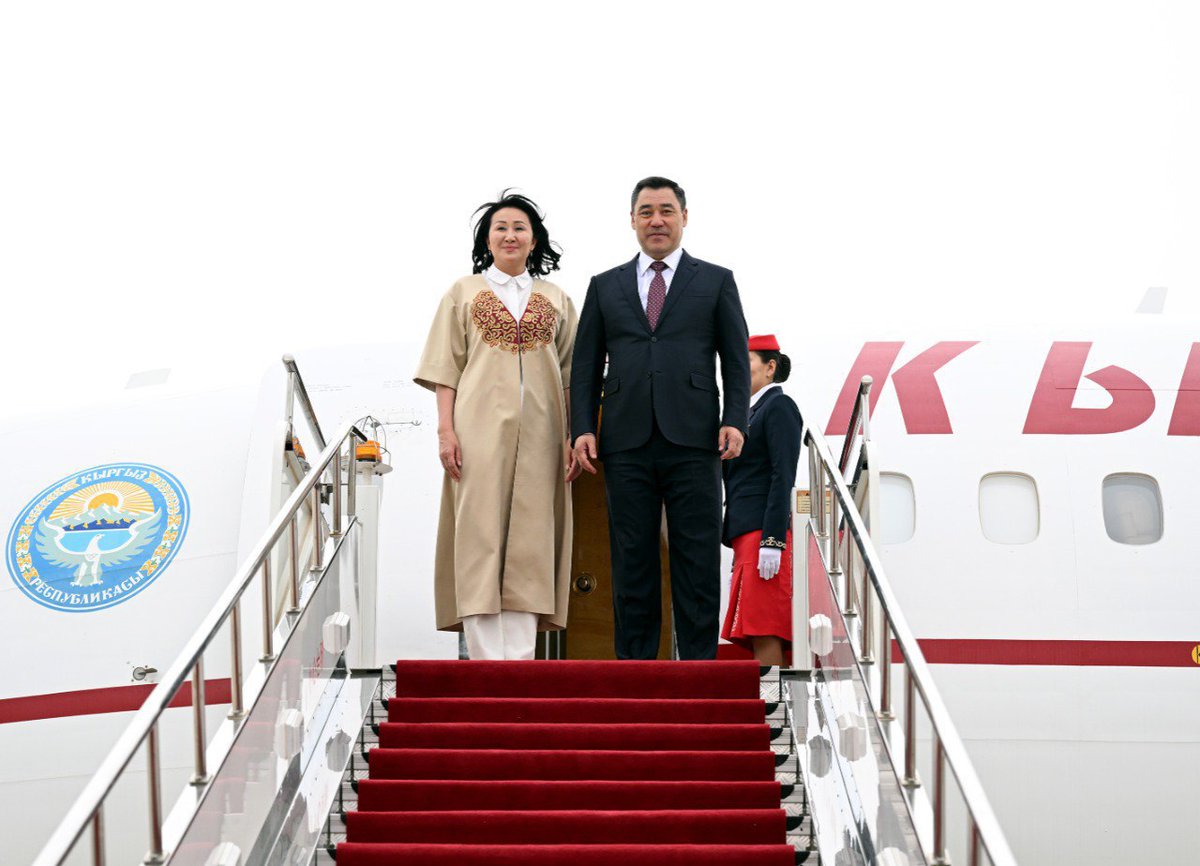🇰🇿🇰🇬🇹🇯🇹🇲🇺🇿🇨🇳 The China-Central Asia summit will be held in the Chinese city of Xi'an from May 18 to 19. This is the first time that China has held a summit in a physical form since the establishment of diplomatic relations with the five Central Asian countries. 🧵
🇰🇬🇨🇳 Sadyr Japarov, President of Kyrgyzstan, has arrived on a state visit to China for the China-Central Asia summit (May 18-19). At a time when century-old changes are accelerating, China and the five Central Asian countries are working hand in hand for the future. 

In 2013, the PRC launched the Belt and Road Initiative to create a new driving force for global development. All five countries of Central Asia have signed documents on cooperation within the framework of this initiative.
🇺🇿🇨🇳 Shavkat Mirziyoyev, President of the Republic of Uzbekistan, arrives in Xi'an for the China-Central Asia summit. Building a China-Central Asia community with a shared future is taking solid steps to bring more certainty to an uncertain world and contribute to world peace.
🇰🇿🇨🇳 “Friendship is an inexhaustible wealth”, the heads of state of China and Kazakhstan held talks! On 17 May, President Xi Jinping held talks in Xi'an with President Kassym-Jomart Tokayev of Kazakhstan who is in China for the China-Central Asia Summit and a state visit.
🇰🇿🇨🇳 Kazakhstan’s new dry port has become a major logistics hub for China-Europe freight trains and allows landlocked Kazahkstan to access a seaport in China. The China-Central Asia Summit to be held on May 18-19 is expected to open a new chapter for China-Central Asia relations.
🇰🇬🇹🇯🇨🇳 The new North-South Highway in Kyrgyzstan will become an important international transport channel and help promote economic development in Kyrgyzstan. A new workshop in Dushanbe, Tajikistan teaches modern equipment and new knowledge to youth.
🇹🇲🇺🇿🇨🇳 The China-Central Asia natural gas pipeline runs from the Turkmen-Uzbek border, links up with China’s west-east gas pipeline. It is a key pillar in Turkmenistan’s economy. The preservation and restoration of historical sites in Uzbekistan has increased its tourist appeal.
Kazakh ambassador: China-Central Asia Summit to usher in a new era for cooperation, cooperation will benefit all sides #PeaceThroughDevelopment
🇰🇬 “We’re in the middle between Russia, Iran, Saudi Arabia, India, Pakistan, and Afghanistan. We must be a logistic hub for Greater Eurasia,” said Djoomart Otorbaev, former PM of Kyrgyzstan and a distinguished professor at the Belt and Road School at Beijing Normal University.
• • •
Missing some Tweet in this thread? You can try to
force a refresh




